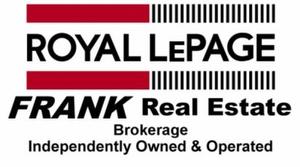
For Buyers
Finding the right agent
You want to find the right home, in the right location, at the right price - and you want to do it quickly, with minimum hassle. The best way to do that is to work with a professional realtor who understands your wants and needs, your time frame and your financial boundaries.
Why work with an agent?
- You’ll save time. An agent can pinpoint homes that fit your needs and dismiss those that don’t.
- You benefit from an experienced negotiator. Your agent will manage your offers and counter-offers, ensuring that you get the best possible price for your home.
- You’ll get the right information. Your agent knows the neighbourhood and can give you accurate information on local real estate values, taxes, utility costs, services and amenities.
- You can always count on great advice. Because your agent is familiar with the entire home purchasing process, he or she can advise you of your legal and financial options, and recommend appraisal, home inspection and contracting services.
Choose an agent who understands your needs
Here are a few questions to ask to help you determine if an agent is right for you:
- Will you be representing my interests?
- Do you have access to MLS information?
- Will you provide market evidence to support the price?
- Will you look after closing and possession details?
- Can you be contacted at any time?
TD Canada Trust Mortgage Calculator
Use this link to establish the mortgage and payments that are right for you.
http://www.tdcanadatrust.com/msf/dianerobinson/calculat.html
Qualifying for a mortgage
Your Royal LePage agent can arrange to have you pre-qualified for a mortgage before you start shopping for a home. It’s easy, and you’ll avoid possible disappointments down the road if you fall in love with a place, then find out you can’t afford it. Plus, once you do find the perfect home, it will mean you can make an offer immediately.
Here’s how mortgage approval works: the amount of money you qualify for, plus the amount of cash you can put down equals the amount you can afford to spend on a home. Most lending institutions won’t allow more than about 30% of your income to support a mortgage. If you have other debts, they usually won’t allow your debts and your mortgage to exceed 40% of your income.
Finalizing your mortgage
Once you’ve found the home you want to buy, you’ll need to finalize your financing. You’ll need to provide your lender with the following documents:
1. A copy of the real estate listing of the property. If the home is still to be built, the mortgage lender will need to see the architect’s or builder’s plans and details on lot size and location.
2. A copy of the offer to purchase or the building contract, if this document has been prepared.
3. Documents to confirm employment, income and source of pre-approval.
4. If you have a pre-approved mortgage, it’s a simple matter of finalizing a few details with your mortgage specialist.
Protect yourself with a home inspection
That gorgeous house on the corner lot may look great, but it could be hiding all sorts of expensive, annoying problems, from a leaky roof to faulty wiring to a mouldy basement.
Make sure your home is solid and secure inside and out before you buy it. A home inspector will determine structural and mechanical soundness, identify problem areas, provide cost estimates for any work required, and generate a report. It’s a great way to avoid headaches and costly problems that can turn a dream home into a money pit.
If you decide to go ahead and buy a home with issues that have been flagged by your inspector, you can base your offer on how much potential repairs and upgrades may cost.
Home inspection costs range according to size, age and location of the home. Your Royal LePage sales representative can recommend a reputable home inspection service or arrange for an inspector to visit your property.
Glossary of terms
Amortization period: The actual number of years it will take to pay back your mortgage loan.
Appraised value: An estimate of the value of the property, conducted for the purpose of mortgage lending by a certified appraiser.
Assumability: Allows the buyer to take over the seller’s mortgage on the property.
Closed mortgage: A mortgage that locks you into a specific payment schedule. A penalty usually applies if you repay the loan in full before the end of a closed term.
Condominium fee: A payment among owners, which is allocated to pay expenses.
Conventional mortgage: A mortgage loan issued for up to 75% of the property’s appraised value or purchase price, whichever is less.
Down payment: The buyer’s cash payment toward the property that is the difference between the purchase price and the amount of the mortgage loan.
Equity: The difference between the home’s selling value and the debts against it.
High-ratio mortgage: A mortgage that exceeds 75% of the home’s appraised value. These mortgages must be insured for payment.
Interest rate: The value charged by the lender for the use of the lender’s money, expressed as a percentage.
Land transfer tax, deed tax or property purchase tax: A fee paid to the municipal and/or provincial government for the transferring of property from seller to buyer.
Maturity date: The end of the term of the loan, at which time you can pay off the mortgage or renew it.
Mortgage: The financial institution or person that lends the money.
Mortgage insurance: Applies to high-ratio mortgages. It protects the lender against loss if the borrower is unable to repay the mortgage.
Mortgage life insurance: Pays off the mortgage if the borrower dies.
Mortgagor: The borrower.
Open mortgage: Allows partial or full payment of the principal at any time, without penalty.
Portability: A mortgage option that enables borrowers to take their current mortgage with them to another property, without penalty.
Pre-approved mortgage: Qualifies you for a mortgage before you start shopping. You know exactly how much you can spend and are free to make a firm offer when you find the right home.
Prepayment privileges: Voluntary payments that are in addition to regular mortgage payments.
Principal: The amount borrowed or still owing on a mortgage loan. Interest is paid on the principal amount.
Refinancing: Paying off the existing mortgage and arranging a new one or renegotiating the terms and conditions of an existing mortgage.
Renewal: Renegotiation of a mortgage loan at the end of a term for a new term.
Second mortgage: Additional financing, which usually has a shorter term and a higher interest rate than the first mortgage.
Term: The length of time the interest rate is fixed. It also indicates when the principal balance becomes due and payable to the lender.
Title: Legal ownership in a property.
Variable rate mortgage: A mortgage with fixed payments that fluctuates with interest rates. The changing interest rate determines how much of the payment goes towards the principal.
Vendor take-back mortgage: When the seller provides some or all of the mortgage financing in order to sell their property.
Determine what you can afford
Buying a home involves both one-time costs and more regular monthly expenses. It’s important that you take both into account when you’re figuring out how much you can spend on a home.
The largest one-time cost is the down payment, which usually represents upto 25% of the total price of the property. Then, in addition to the actual purchase price, there are a number of other expenses that you may be expected to pay for.
Typical One-Time Expenses
- Mortgage application and appraisal fee (paid at time of application)
- Appraisal fee (paid at inspection)
- Property inspection (optional) (paid at closing)
- Legal fees (paid at closing)
- Legal disbursements (paid at closing)
- Deed and/or mortgage registration (paid at closing)
- Property survey (sometimes provided by seller) (paid at closing)
- Land Transfer, Deed Tax or PropertyPurchase Tax (in Quebec within3 months following signing) (paid at closing)
- Mortgage interest adjustment andtake over fee (if applicable) (paid at closing)
- Adjustments for fuel, taxes, etc. (paid at closing)
- Mortgage insurance (and application fee if applicable) (paid at closing)
- Home and property insurance (paid at closing and on-going)
- Connection charges for utilities such as gas, water and electricity (paid on date of move)
- Moving expenses (paid on date of move)
Other costs may include landscaping, decorating, furnishings, appliances and repairs. Typical monthly costs include mortgage payments, maintenance, insurance, condo fees, property taxes and utilities.
Understanding market conditions
The real estate market is always changing, and it helps to understand how market conditions can affect your position as a buyer. Your agent can provide you with info on current conditions and explain their impact on you.
Buyers’ market
The supply of homes on the market exceeds demand.
Characteristics
- High inventory of homes
- Few buyers compared to availability
- Homes on the market longer
- Prices tend to drop
Implications
- More time to look for a home
- More negotiating leverage
Sellers’ market
The number of buyers wanting homes exceeds the supply of homes on the market.
Characteristics
- Smaller inventory of homes
- Many buyers
- Homes sell quickly
- Prices usually increase
Implications
- May have to pay more
- Must make decisions quickly
- Conditional offers may be rejected
Balanced market
The number of homes on the market is equal to the number of buyers.
Characteristics
- Sellers accept reasonable offers
- Homes sell within an acceptable time period
- Prices generally stable
Implications
- More relaxed atmosphere
- Reasonable number of homes to choose from

